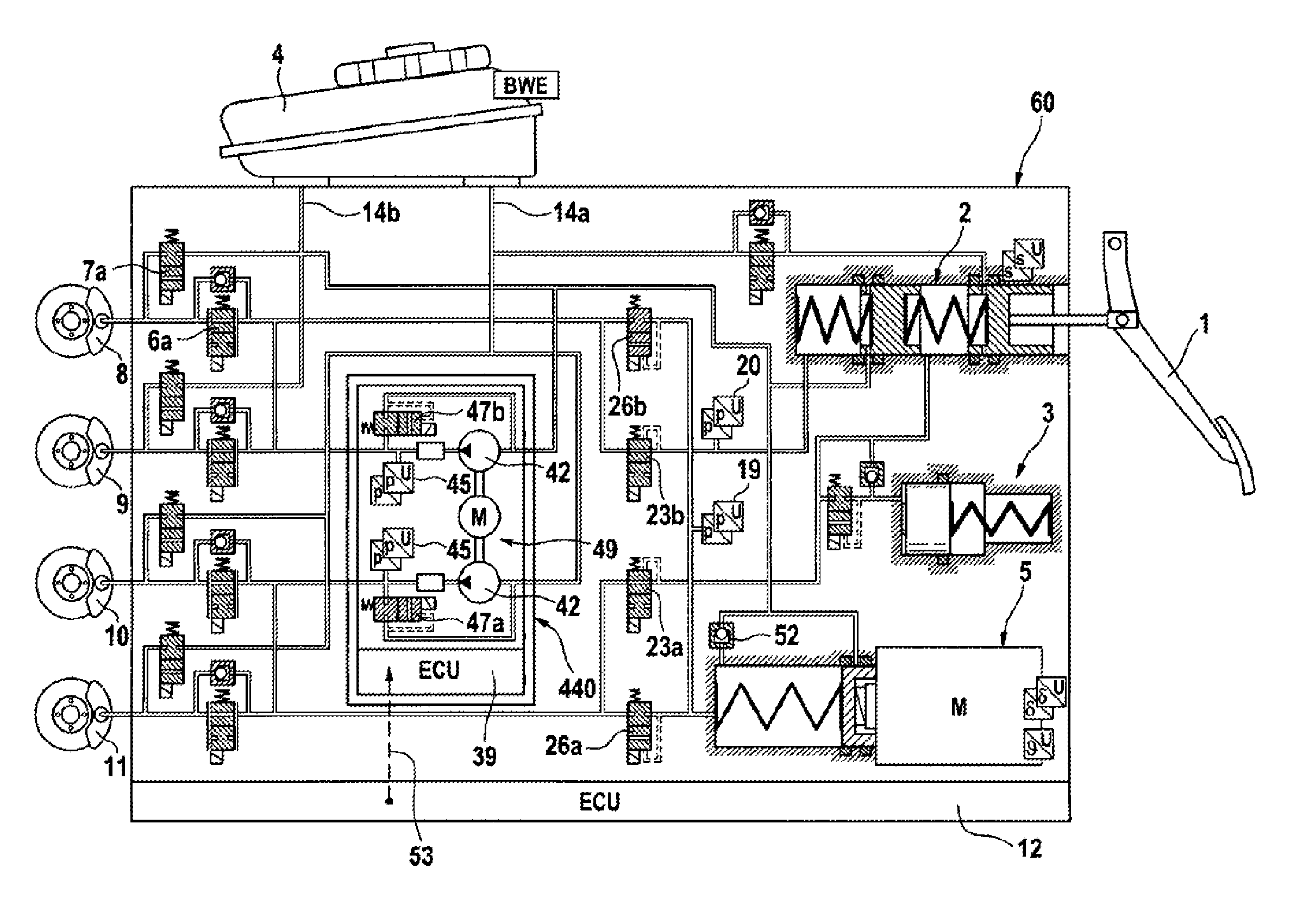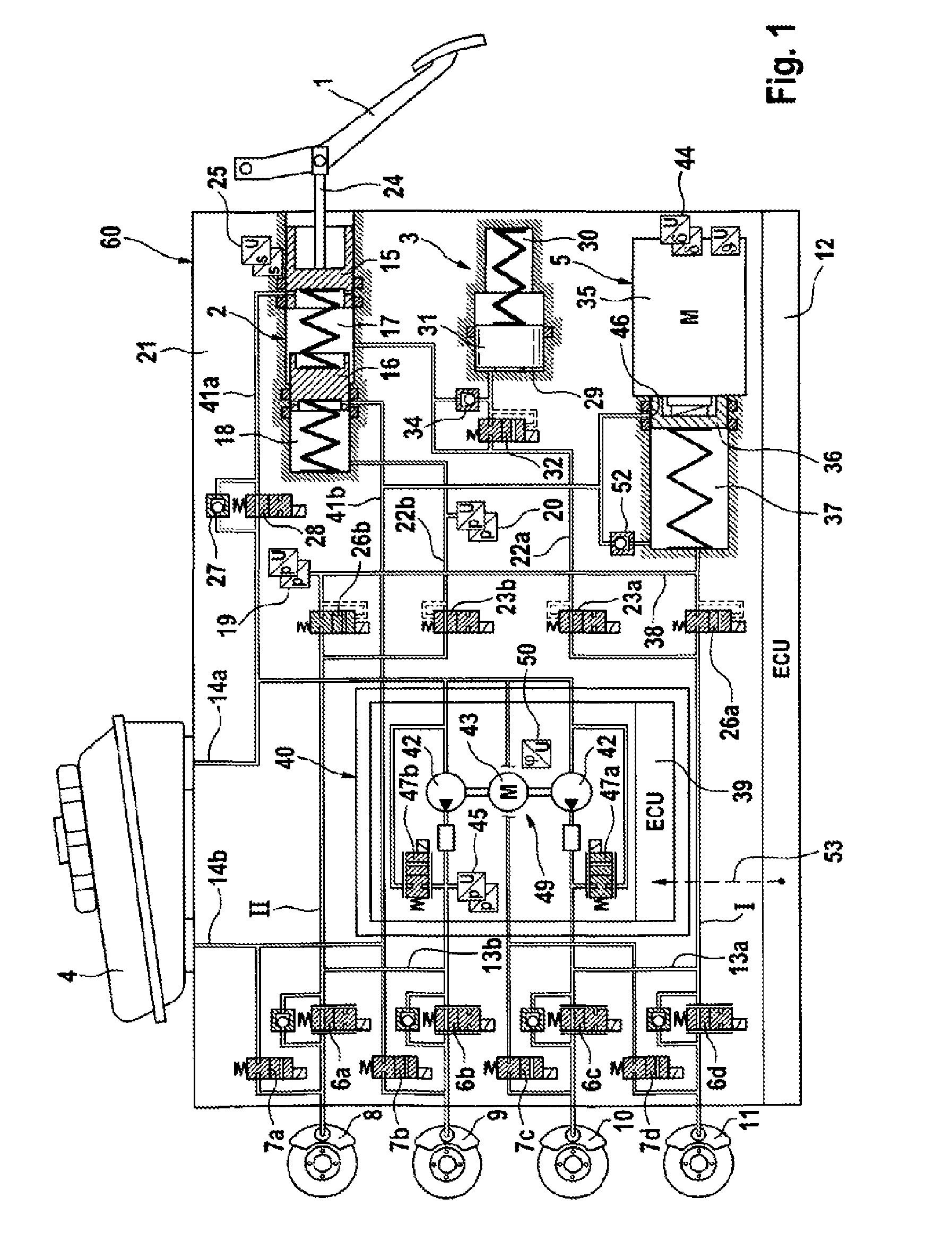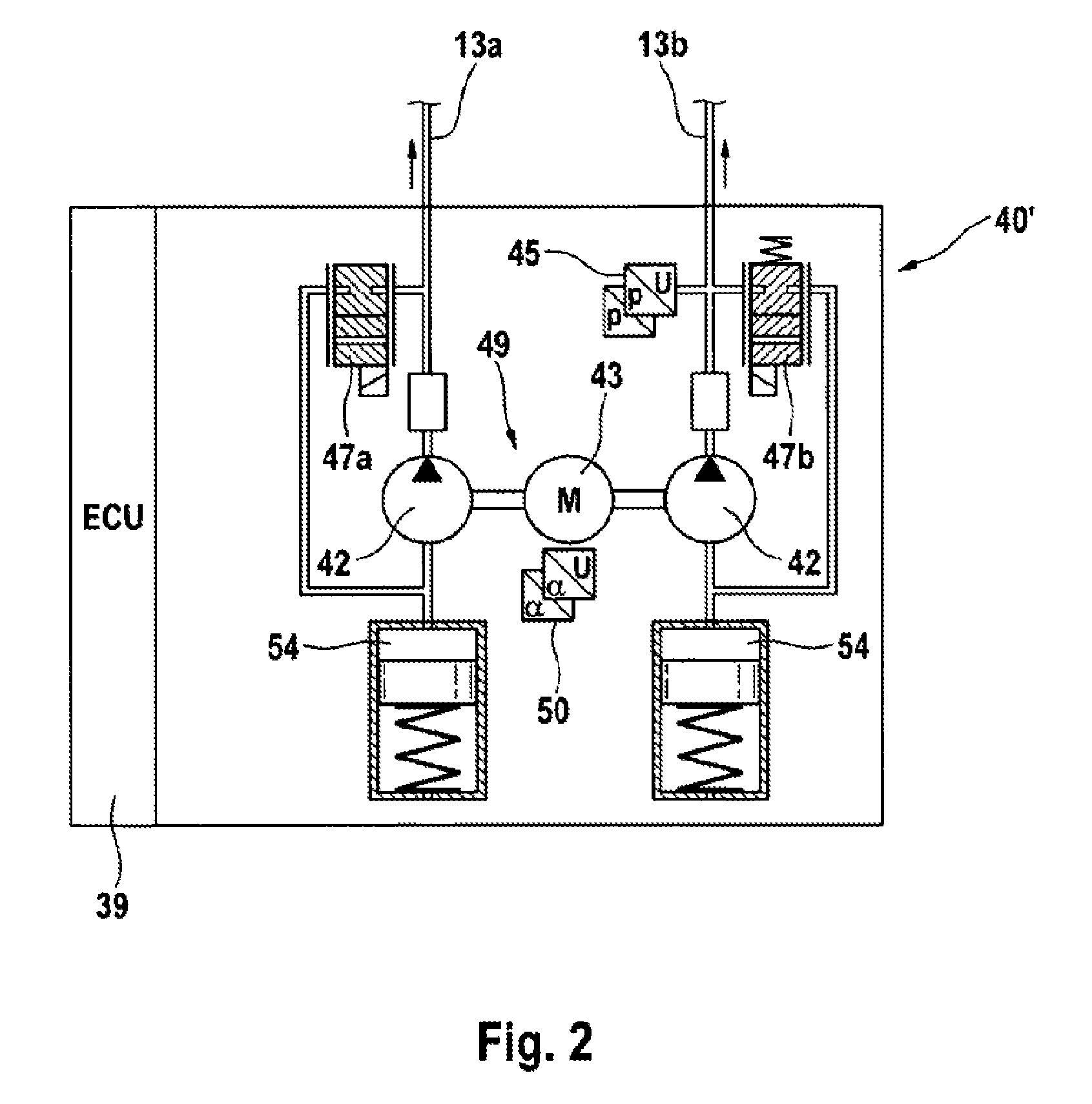Brake system for motor vehicles and method for operating a brake system
a technology for brake systems and motor vehicles, applied in brake systems, brake action initiation, vehicle components, etc., to achieve the effect of shortening the travel of the brake pedal
- Summary
- Abstract
- Description
- Claims
- Application Information
AI Technical Summary
Benefits of technology
Problems solved by technology
Method used
Image
Examples
Embodiment Construction
[0040]A first illustrative embodiment of a brake system according to the invention is shown schematically in FIG. 1. The brake system essentially comprises a hydraulic actuating unit 2, which can be actuated by way of an actuating or brake pedal 1, a travel simulator or simulation device 3 interacting with the hydraulic actuating unit 2, a pressure medium reservoir 4 under atmospheric pressure assigned to the hydraulic actuating unit 2, a first electrically controllable pressure supply device 5, a second electrically controllable pressure supply device 49, an electronic control unit 12 and an electronically controllable pressure modulation device for setting wheel-specific brake pressures.
[0041]The pressure modulation device, which is not denoted specifically, comprises one inlet valve 6a-6d and one outlet valve 7a-7d for each wheel brake 8, 9, 10, 11 of a motor vehicle (not shown) for example, the valves being connected together hydraulically in pairs by center connections and bein...
PUM
 Login to View More
Login to View More Abstract
Description
Claims
Application Information
 Login to View More
Login to View More - R&D
- Intellectual Property
- Life Sciences
- Materials
- Tech Scout
- Unparalleled Data Quality
- Higher Quality Content
- 60% Fewer Hallucinations
Browse by: Latest US Patents, China's latest patents, Technical Efficacy Thesaurus, Application Domain, Technology Topic, Popular Technical Reports.
© 2025 PatSnap. All rights reserved.Legal|Privacy policy|Modern Slavery Act Transparency Statement|Sitemap|About US| Contact US: help@patsnap.com



